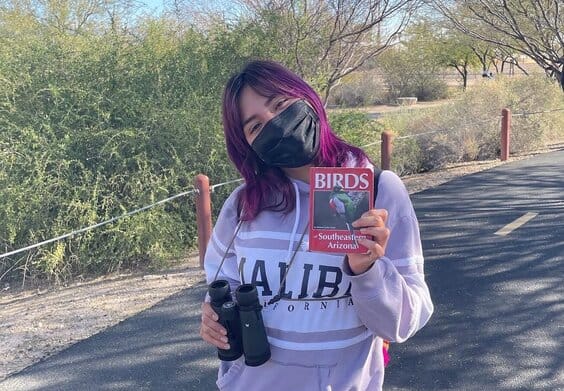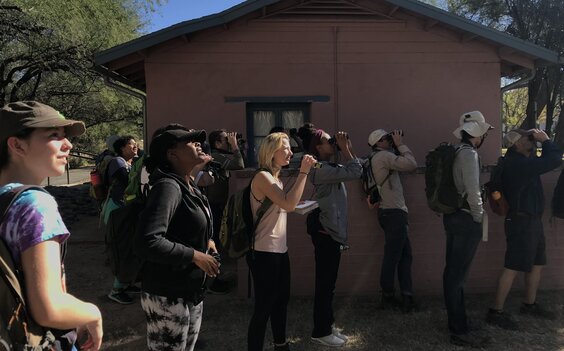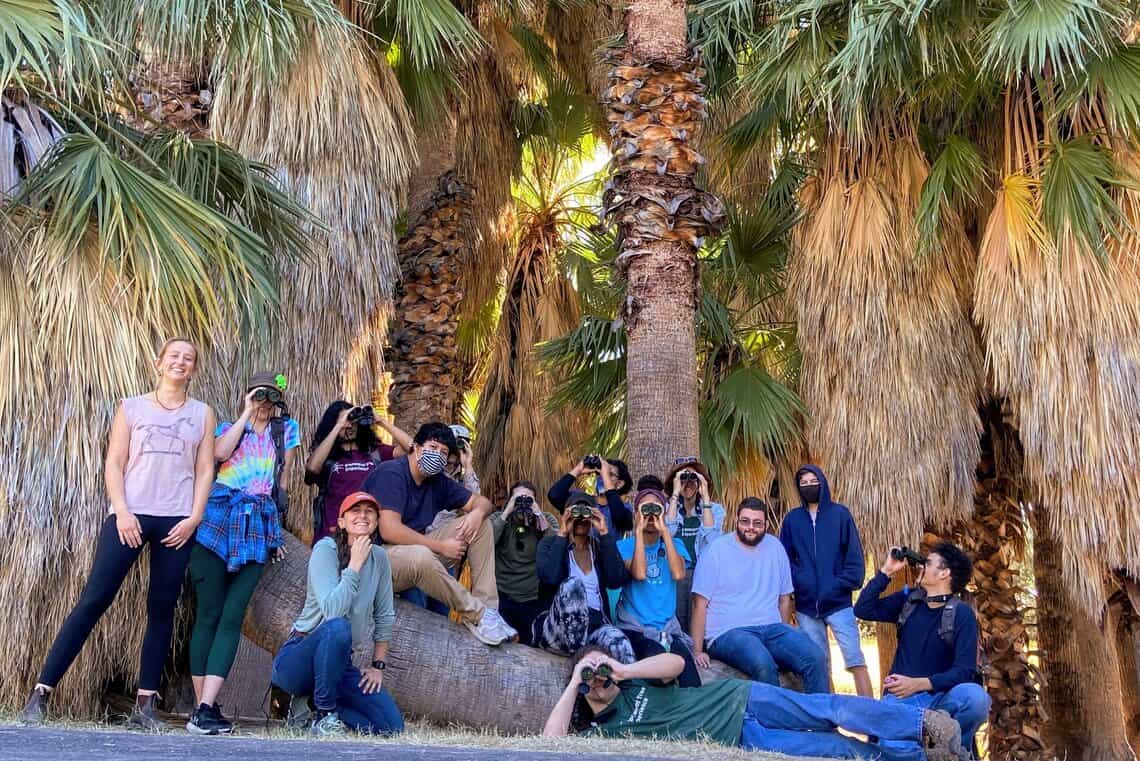By Kristen Sawyer, Ironwood Tree Experience and Emily Clark, Sonoran Joint Venture
Now more than ever people are feeling the pull to be connected to something, whether that be other people, animals, or nature. Yet with the ongoing pandemic restrictions and limited access to natural spaces in some Tucson neighborhoods, many students haven’t been able to have those connections. Ironwood Tree Experience (ITE) seeks to change that through their numerous programs that help youth from diverse ethnicities and socioeconomic backgrounds to engage with the natural world and become stewards of the environment. Co-founded in 2005 by Suzanne and Eric Dhruv, ITE has become a leader in outdoor, experiential learning. Their Urban Field Station serves as a launch pad for outdoor exploration, adventure, and action in the ecological and human communities within Sonoran Desert Ecosystems. It provides a safe place outside of school and home where learning through experiences and interaction with peers and community members are always available. They offer programs for teachers and students, as well as options for more directed youth internships and community action opportunities.

With financial support from the USFWS Migratory Bird Program and guidance from the Sonoran Joint Venture, ITE received funding to engage youth through outdoor bird and bird habitat experiential education. The program provides teachers and youth with lessons and activities in bird identification, natural history, ecology, habitat management, conducting community science, and creative expression. ITE and SJV are working together to develop and implement this program, with both organizations allocating staff support. The SJV provides expertise in bird identification and conservation and ITE manages all aspects of youth outreach, recruitment, risk management, instruction, and supervision.
As part of the effort, ITE launched a new Youth Action Community program (YAC Outdoors) to explore the outdoors while learning about birds. Field experiences range from half-day outings to overnight programs that occur primarily on public lands of southeastern Arizona. While some activities have been reduced in scope due to precautions regarding Covid-19, the students have been able to visit some amazing places including camping at Temporal Gulch and visiting the Paton Center for Hummingbirds, as well as getting to know some special urban natural areas of Tucson like Sweetwater Wetlands, Agua Caliente Park, and local favorite places for birding along the Santa Cruz River.
Since beginning the SJV-YAC Outdoors programs in September, 47 youth, alumni and community members have gathered for these outings. An ITE alumni, Alegria, who recently got re-engaged with birds through these programs, shared, “ITE is a program that has grown a lot. Before, it was specifically geared toward just getting young people out into nature. Now, it’s also about getting all people out into nature- young people and adults, connecting them with other groups who can help them in their future…”

We have found that to make events more accessible for our community, inviting younger siblings, parents, and friends to come helps to create a multigenerational learning experience. Another participant, Audrey, an intern with the ITE Desert Youth Heritage Project program, shared that participating in YAC Outdoors helped her connect with other ITE students in a different way. The focus on birds helped break up the grouping amongst friends and created new opportunities for connection. On that same trip, our urban birding experience in downtown Tucson, a new YAC member, 8th grader Hazel, said that she couldn’t wait to sign up for the next trip. She had found people who like this kind of stuff– birds and binoculars– people like her.
Each of our outings is rooted in a theme that ties birds and humans together, such as migration, home-place, kinship, and community. Students who have never picked up a guidebook or held a pair of binoculars receive instruction from our Birding 101 segment and get to see the brilliant red of a Vermilion Flycatcher up close for possibly the first time. Using tools like scavenger hunts, students identify birds “talking” with one another, materials for nest building, and examples of how humans are inspired by birds (like the January 8th Memorial in Presidio Park). Taking the time to incorporate artistic expression like writing poems, nature journaling, or drawing into the lessons allows people to reflect on what these experiences and connections with nature and to each other mean in their own way.
Our programs began in the fall of 2021 and will culminate in spring 2022 with Creativity on the Fly, both a contest and exhibition of work from our participants. This contest is open for community members ages 10-25 who want to artistically express how humans and birds migrate together, create community together, and make homes together. We opened the contest on March 9, 2022. Check out the Creativity on the Fly webpage and stay tuned for an update later this year!

